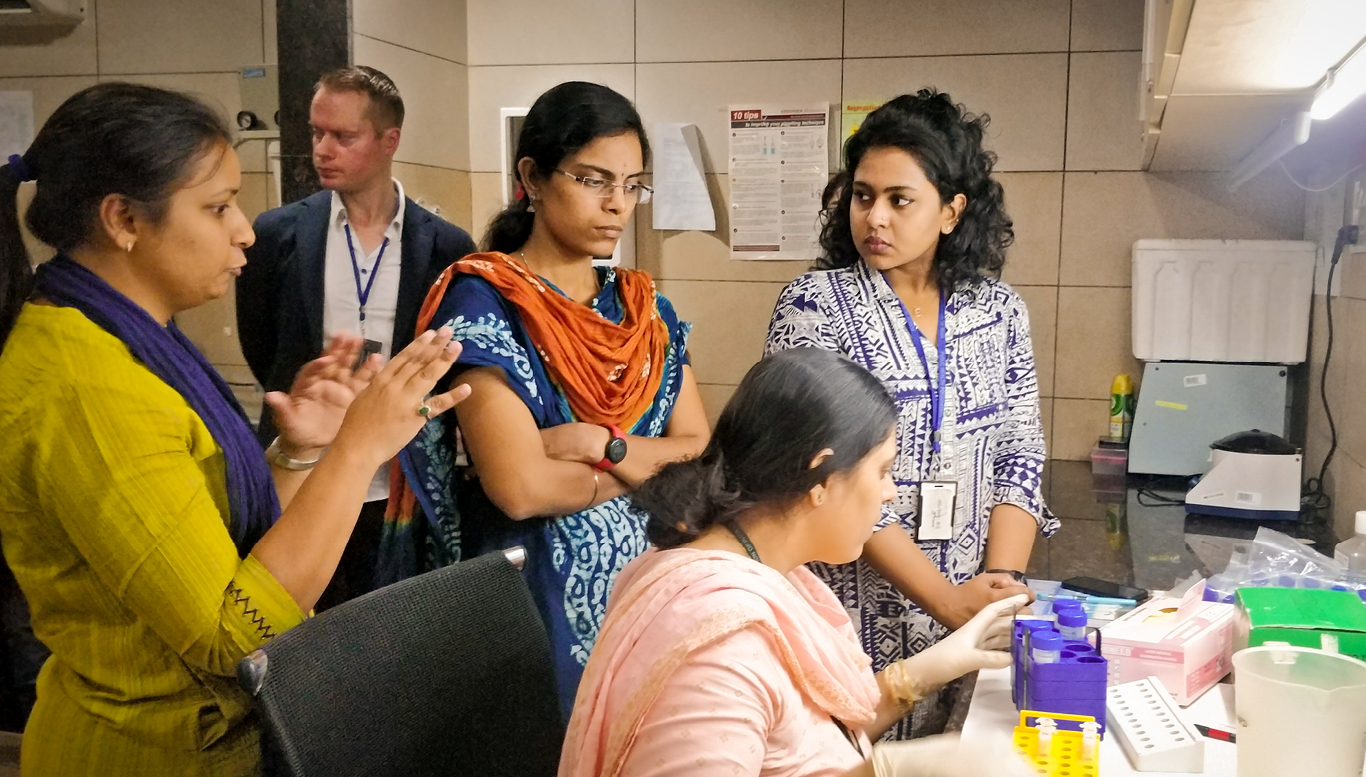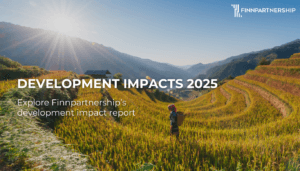An affordable and easy oral cancer screening method

Finnish health technology companies offer solutions to major health threats in Africa, Asia and globally. The UN member states have agreed on the Sustainable Development Goals by 2030. One of the goals (SDG 3), is to ensure heathy life and well-being for all ages. Aqsens Health is one of the companies that have received Finnpartnership’s Business Partnership Support. Finnpartnership helps companies to make profitable business while helping to achieve the SDG goals.
Oral cancer is a major public health problem in India
Roughly 52,000 people die of oral cancer each year in India. Approximately one in three cancer patients in India suffer from oral cancer. It is the most common type of cancer among men. The primary reason oral cancer is so common in India is the use of chewing tobacco. This type of tobacco is produced from naturally occurring, carcinogenic betel leaves and is most commonly used by many of the poorest people in the country.
Early diagnosis and monitoring of oral cancers is important because they progress quickly and become difficult to treat once they advance past a certain stage. The earlier the cancer is detected, the better the patient’s chances of recovery and the cheaper the treatment. Unfortunately, cancer is often detected too late.
An affordable and easy oral cancer screening method
Aqsens Health Oy has patented a low-cost and easy oral cancer screening method developed in collaboration with the University of Turku. A rapid test developed by the company and based on this method can be used to screen saliva for early-stage oral cancer. The method developed by the company can be utilised by private and public health care providers, as well as the voluntary sector.
Using traditional methods, detecting oral cancer requires a doctor to surgically remove a tissue sample. This procedure is expensive, and most people in India simply cannot afford it. The company’s device, which tests saliva samples and can be brought to wherever the difficult-to-transport samples are taken, can reduce the cost of testing significantly.
The right partners can open doors to new markets
Finding the right partners has been a prerequisite for the success of the company’s efforts. The internationally recognised Public Health Foundation of India (PHFI) has taken on the role of performing validation testing for the product in India.
Timo Teimonen, the CEO of Aqsens, explains that the company is now also working with a foundation established by India’s largest biotechnology company, Biocon. Through Biocon, the company gained a communication channel to the Indian Department of Biotechnology. “India is a country where working with and through the state and public organisations is extremely important.”
Scalable health technology produces profitable business activities and far-reaching development impacts
Biocon Foundation already performs over 100,000 screenings each year through their charity work alone. Aqsens also intends to establish cooperative relationships with other foundations, large funds and development banks in the health care sector in the future. “By working with organisations like these, we can scale up our operations and have a real impact,” Teimonen explains. “Once our operations really get going, the method developed by Aqsens will be used to perform millions of cancer screenings every year. Oral cancer is also a big issue in many other Asian countries with large populations, which means there is plenty of demand for the product.”
The method was originally developed to screen for oral cancer, but the device has also shown to be extremely useful for monitoring the spread of infectious diseases. In Ghana, the same device and technology are being developed further to provide a malaria diagnosis from a saliva sample. The method is made particularly interesting by the fact that the mobile phone that is used to read the test results also records the time and place of each test. This information is particularly valuable when it comes to monitoring epidemics, as an up-to-date situational picture allows the epidemic to be managed effectively, Teimonen explains.
The Business Partnership Support granted to Aqsens Health’s project by Finnpartnership has also played an important role in helping the company establish a subsidiary in Bangalore. Without a subsidiary, the company would not have been able to gain the permits required by the Indian Department of Biotechnology for medical validation testing. Finnpartnership’s support has also allowed for social impacts and their evaluation to remain central to the project, which is very important to the company, its partners and its customers.
Share on social media


